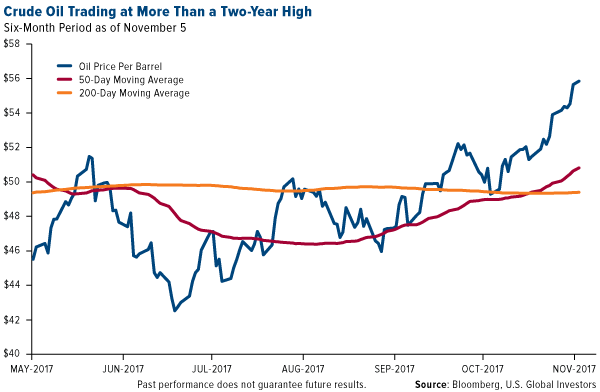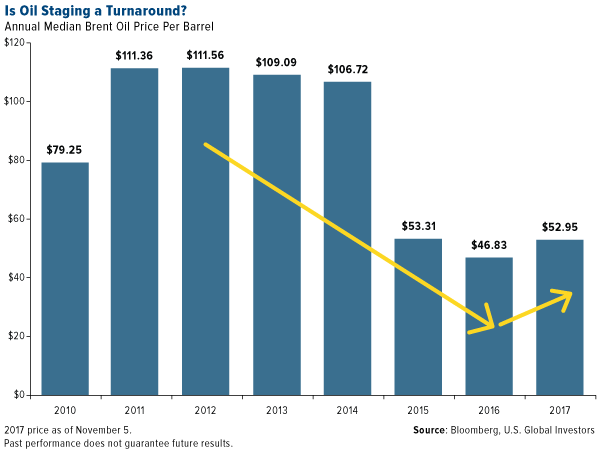Recently I identified five agents of change that I believe investors should know about right now. I’d like to add one more to the list: Mohammad bin Salman. The crown prince of Saudi Arabia, 32, was little known outside the region before this past weekend when he jailed members of the royal family, presumably in an attempt to consolidate power ahead of taking the throne. Resembling a plotline from an episode of “Game of Thrones,” the mass detentions signal a seismic change in Saudi leadership—which, in turn, is putting upward pressure on global oil prices.
Saudi Arabia is the world’s second-largest oil producer and single biggest oil exporter, so any development that might alert investors that the kingdom’s production levels or oil policy could be disrupted has historically had a profound effect on prices. When the country’s former king, Abdullah bin Abdulaziz Al Saud, passed away in January 2015, oil jumped more than 8.6 percent for the week.
And so was the case on Monday, after news broke of the shakeup. West Texas Intermediate (WTI), the American benchmark for crude, closed above $57 a barrel for the first time since June 2015, adding nearly 35 percent from its summer 2017 low. A weaker U.S. dollar, down about 3.2 percent from the same time last year, is also providing support, as is slower U.S. supply growth following Hurricanes Harvey and Irma.

Mike McGlone, commodity strategist at Bloomberg Intelligence, points out that 2017 marks the first year since 2013 that the median price of WTI crude is higher than the previous year’s. (This is assuming WTI will trade range bound or higher between now and the end of 2017.)
The last time we saw Brent do this was from 2011 to 2012. On Monday, the European benchmark closed above $64 a barrel, more than a two-year high. As of November 5, Brent crude had made positive weekly gains in 10 out of the past 11 weeks.

Taken together, this has the bulls excited. Hedge funds are currently building record or near-record net long positions in oil, indicating they’re betting prices will continue to climb. According to Reuters, bullish positions in Brent stood at a record 587 million barrels as of Friday, with a record 530 million of those net long.












Leave A Comment